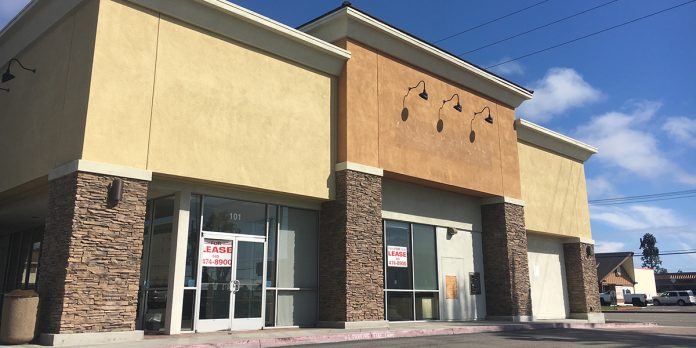Investing in commercial real estate can be a lucrative endeavor, and finding the right commercial property for sale is a crucial first step in the process. Whether you’re a seasoned investor or a first-time buyer, this comprehensive guide will provide you with the knowledge and strategies necessary to navigate the commercial property market effectively.
- Types of Commercial Properties for Sale
Commercial real estate encompasses various property types, each with its unique characteristics and potential benefits. The key categories of commercial properties for sale include:
A. Office Spaces: Office buildings are designed for business use, offering spaces for professional services and corporate offices. They can range from small suburban offices to large high-rise buildings in urban centers.
B. Retail Spaces: Retail properties include shopping centers, standalone stores, and strip malls. They are suitable for businesses that cater to consumers and rely on foot traffic.
C. Industrial Properties: Industrial real estate includes warehouses, manufacturing facilities, distribution centers, and logistics hubs. These properties cater to businesses engaged in manufacturing, storage, and distribution.
D. Multifamily Housing: Multifamily properties encompass apartment buildings, condominium complexes, and other residential properties with multiple units. Investors can purchase these properties for rental income.
E. Special Purpose Properties: Special purpose properties serve unique functions, such as theaters, churches, schools, and healthcare facilities. They often require specific designs and configurations to meet their intended use.
- The Buying Process
The process of purchasing commercial property involves several key steps:
A. Define Your Investment Strategy: Start by identifying your investment goals, risk tolerance, and preferred property type. This will guide your search and decision-making process.
B. Financing: Determine your budget and financing options. Commercial real estate loans, including commercial mortgages, are common ways to finance the purchase.
C. Property Search: Engage a real estate agent or broker specializing in commercial properties to help you identify suitable listings. Online databases, auctions, and direct owner outreach are also viable search methods.
D. Due Diligence: Conduct thorough due diligence, including property inspections, financial analysis, title searches, environmental assessments, and lease reviews. Ensure the property aligns with your investment goals.
E. Negotiation: Negotiate the purchase price, terms, and any contingencies. Consult with legal and financial professionals to structure a favorable deal.
F. Closing: Once you’ve agreed on the terms and received lender approval, proceed to the closing process, which includes finalizing contracts, transferring ownership, and disbursing funds.
- Location Matters
The location of a commercial property is a critical factor that significantly impacts its success and value. Consider the following aspects when evaluating the location:
A. Accessibility: Proximity to major highways, public transportation, and airports is essential for attracting businesses and customers.
B. Demographics: Analyze the local population’s size, age distribution, income levels, and growth trends to understand the potential customer base.
C. Competition: Assess the level of competition and the saturation of similar businesses in the area.
D. Zoning and Regulations: Investigate local zoning laws, permitting requirements, and building codes to ensure your intended use complies with local regulations.
- Assessing Property Condition
The physical condition of a commercial property is a vital aspect of the buying process. An inspection should be conducted to evaluate the property’s:
A. Structural Integrity: Ensure the building’s foundation, roof, walls, and systems are in good condition and comply with safety standards.
B. Environmental Issues: Assess the property for potential environmental hazards or contamination that may affect future operations or value.
C. Maintenance and Repairs: Consider the maintenance history and the need for any immediate repairs or upgrades.
D. Code Compliance: Verify that the property adheres to local building codes and regulations.
- Lease Agreements
If the commercial property for sale includes tenants, carefully review the lease agreements. Key aspects to consider include:
A. Lease Terms: Examine the length of lease agreements, rental rates, and any provisions for rent escalations.
B. Tenant Quality: Evaluate the financial stability and creditworthiness of existing tenants.
C. Lease Expirations: Determine when current leases are set to expire and if any vacant space needs to be leased or renewed.
D. Tenant Mix: Consider the diversity of tenant types and their compatibility within the property.
- Risks and Challenges
Commercial real estate investments come with their own set of risks and challenges. Some common considerations include:
A. Economic Downturns: Economic recessions can lead to reduced tenant demand, increased vacancies, and lower rental rates.
B. Market Competition: Highly competitive markets may drive up property prices and reduce rental income potential.
C. Financing Risks: Interest rate fluctuations and the availability of commercial loans can impact the affordability of your investment.
D. Lease Vacancies: Tenant turnover and vacancies can disrupt cash flow and necessitate additional marketing efforts.
E. Legal and Regulatory Compliance: Staying abreast of changing regulations and zoning laws is crucial to avoiding potential legal issues.
Conclusion
Investing in commercial property for sale is a significant financial endeavor that can provide substantial returns when approached strategically. To maximize your investment success, conduct thorough research, engage with experienced professionals, and remain vigilant in assessing market conditions and property quality. With the right approach, commercial real estate can be a lucrative and stable addition to your investment portfolio.






